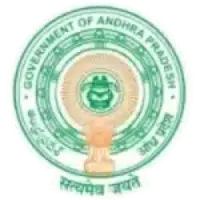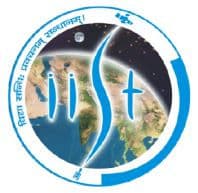Latest Applications Open 2024:
AP PGECET 2024 Computer Science & Information Technology Syllabus has been Available now. The AP PGECET Computer Science & Information Technology Syllabus is a comprehensive guide that outlines the specific topics and subjects candidates must cover to excel in this competitive examination. It encompasses various subjects, including computer science fundamentals, information technology, and advanced topics. This syllabus covers crucial areas such as data structures, algorithms, programming languages, databases, computer networks, software engineering, and more. It also includes emerging fields like artificial intelligence, machine learning, and cybersecurity.
Candidates aspiring to pursue M.Tech or M.E. programs in Computer Science and Information Technology in Andhra Pradesh should thoroughly study this syllabus to prepare effectively for the AP PGECET exam. Additionally, keeping up with industry trends and technologies is vital for success in this field, as it is a dynamic and evolving domain.
To succeed in AP PGECET Computer Science & Information Technology, candidates should focus on a deep understanding of the fundamentals, problem-solving skills, and staying updated with the latest developments in the field. Adequate preparation based on the syllabus is key to achieving a competitive score and securing admission to their desired postgraduate programs.
AP PGECET 2024 Computer Science & Information Technology Syllabus – Available
AP PGECET 2024 Computer Science & Information Technology Syllabus has been Available now. Click to Download Syllabus PDF.
Engineering Mathematics
Engineering Mathematics is a fundamental and essential branch of mathematics that plays a pivotal role in various engineering disciplines. It provides the mathematical foundation for solving complex engineering problems and designing innovative solutions. Engineering Mathematics encompasses various mathematical concepts, including calculus, linear algebra, differential equations, probability, and statistics, tailored to address engineering applications. Engineers rely on these mathematical principles to analyze, model, and optimize systems, making them an indispensable tool for engineering.
Probability and Statistics: Probability, Conditional Probability; Probability Density Function, Mean, Median, Mode and Standard Deviation; Random Variables; Distributions; uniform, normal, exponential, Poisson, Binomial.
Set Theory & Algebra: Sets; Relations; Functions; Groups; Partial Orders; Lattice; Boolean Algebra.
Linear Algebra: Algebra of matrices, determinants, systems of linear equations, Eigen values and Eigen vectors.
Numerical Methods: LU decomposition for systems of linear equations; numerical solutions of non- linear algebraic equations by Secant, Bisection and Newton-Raphson Methods; Numerical integration by trapezoidal and Simpson’s rules.
Calculus: Limit, Continuity & differentiability, Mean value Theorems, Theorems of integral calculus, evaluation of definite & improper integrals, Partial derivatives, Total derivatives, maxima & minima. Computer Science and Information Technology
Combinatorics: Permutations; Combinations; Counting; Summation; generating functions; recurrence relations; asymptotic.
Graph Theory: Connectivity; spanning trees; Cut vertices & edges; covering; matching; independent sets; Coloring; Planarity; Isomorphism. Mathematical Logic: Propositional Logic; First Order Logic.
Digital Logic: Logic functions, Minimization, Design and synthesis of combinational and sequential circuits; Number representation and computer arithmetic (fixed and floating point).
Computer Organization and Architecture: Machine instructions and addressing modes, ALU and data- path, CPU control design, Memory interface, I/O interface (Interrupt and DMA mode), Instruction pipelining, Cache and main memory, Secondary storage.
Programming and Data Structures: Programming in C; Functions, Recursion, Parameter passing, Scope, Binding; Abstract data types, Arrays, Stacks, Queues, Linked Lists, Trees, Binary search trees, Binary heaps.
Algorithms: Analysis, Asymptotic notation, Notions of space and time complexity, Worst and average case analysis; Design: Greedy approach, Dynamic programming, Divide-and conquer; Tree and graph traversals, Connected components, Spanning trees, Shortest paths; Hashing, Sorting, Searching. Asymptotic analysis (best, worst, average cases) of time and space, upper and lower bounds, Basic concepts of complexity classes P, NP, NP-hard, NP-complete.
Theory of Computation: Regular languages and finite automata, Context free languages and Push-down automata, Recursively enumerable sets and Turing machines, Undesirability.
Compiler Design: Lexical analysis, Parsing, Syntax directed translation, Runtime environments, Intermediate and target code generation, Basics of code optimization.
Operating System: Processes, Threads, Inter-process communication, Concurrency, Synchronization, Deadlock, CPU scheduling, Memory management and virtual memory, File systems, I/O systems, Protection and security.
Databases: ER-model, Relational model (relational algebra, tuple calculus), Database design (integrity constraints, normal forms), Query languages (SQL), File structures (sequential files, indexing, B and B+ trees), Transactions and concurrency control.
Information Systems and Software Engineering: Information gathering, requirement and feasibility analysis, data flow diagrams, process specifications, input/output design, process life cycle, planning and managing the project, design, coding, testing, implementation, and maintenance.
Computer Networks: ISO/OSI stack, LAN technologies (Ethernet, Token ring), Flow and error control techniques, Routing algorithms, Congestion control, TCP/UDP and sockets, IP(v4), Application layer protocols (ICMP, DNS, SMTP, pop, FTP, HTTP); Basic concepts of hubs, switches, gateways, and routers. Network security basic concepts of public key and private key cryptography, digital signature, and firewalls.
Web technologies: HTML, XML, basic concepts of client-server computing.

As a dedicated Biology Science graduate, I’m passionate about sharing the latest updates in national and state entrance exams through my blog. I aim to keep aspiring students informed about exam trends, important dates, and changes in syllabi. With a keen interest in education, I strive to offer valuable insights for students navigating the competitive landscape of entrance examinations and admission tests. Stay updated with me.


